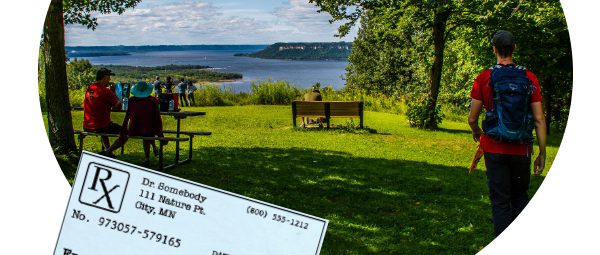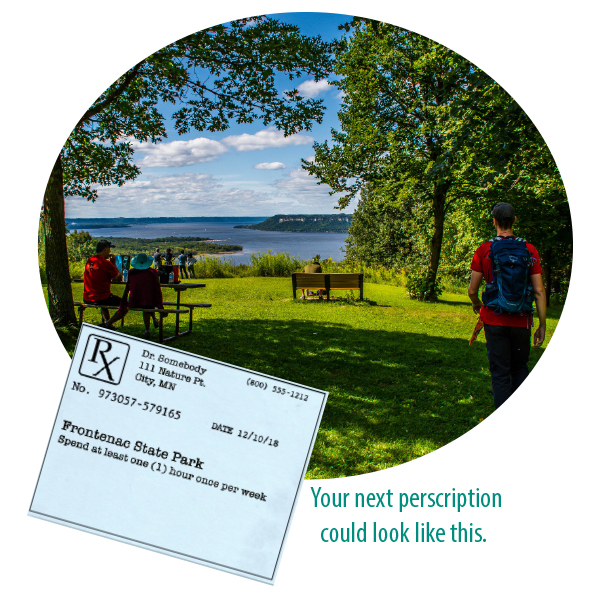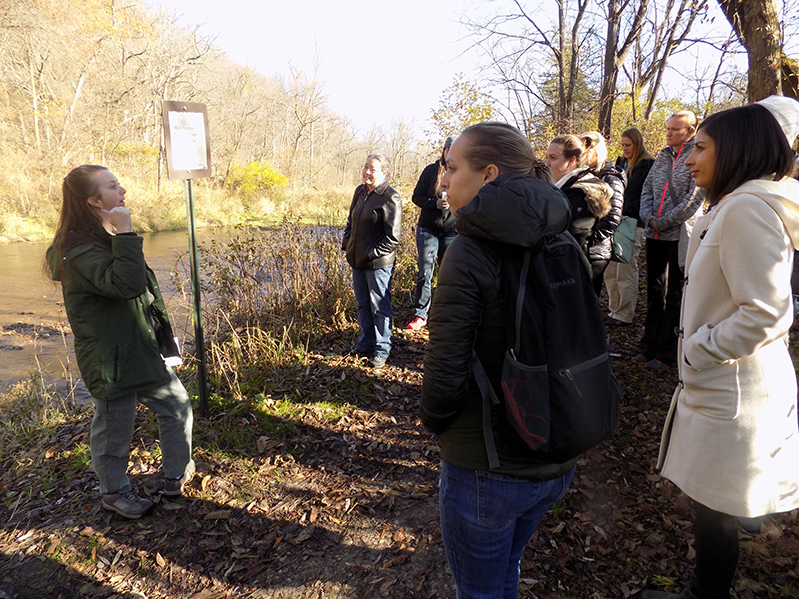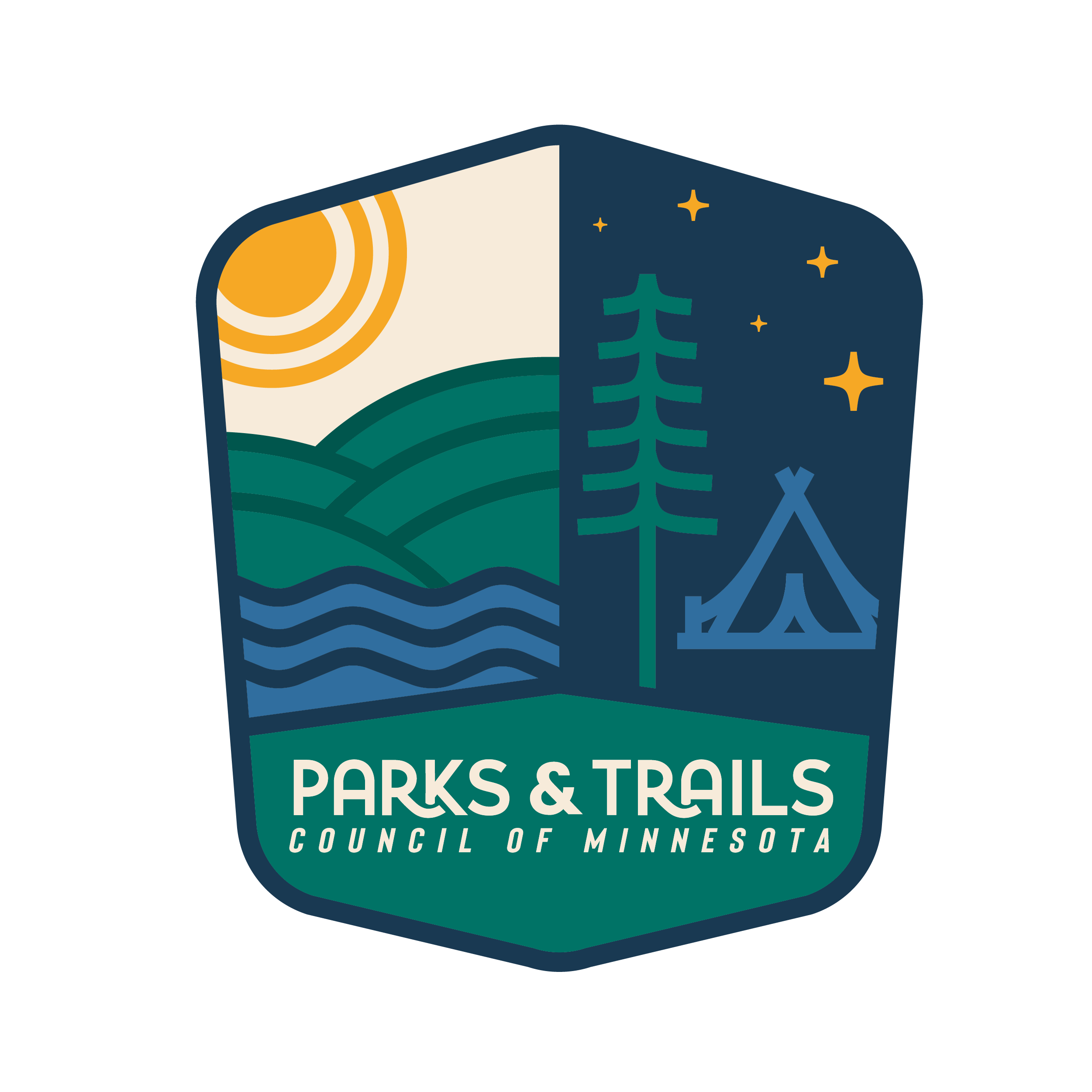
Movement growing for doctors’ to prescribe nature
The next time you’re at your doctors office you may end up leaving with a prescription not for pills, but for nature.
A wealth of studies demonstrate a connection between time spent in nature and improved health. Of course, this connection comes as no surprise to anyone who has spent time in nature, but rigorous research is now proving it. And several organizations, most notably Park Rx America, are working to turn this knowledge into practice among doctors.
In its simplest form, a nature prescription can simply be a doctor telling a patient to spend time in nature. Some doctors use a special notepad to officially write down the prescription—for example “spend two hours a week at a nearby park” and hand it to the patient. But Park Rx America has ramped up the process in the hope that more doctors will get on board if given specific tools.

The Park Rx America website features an online map of parks across the nation that can be prescribed. Doctors log in to enter the prescription into the database, which can be synced with Electronic Health Records. Patients can then log in to the patient-side to find directions and track their visits, which the doctor can review at the next appointment.
The online map includes a filter for over 100 amenities, so the user can see which parks have a swimming beach, a skateboard park, a paved trail of various mileage options, etc. The map relies on the staff from each listed park to enter the information and keep it up to date.
Staff from the MnDNR have embraced the Park Rx America model. All Minnesota State Parks and Recreation Areas are now listed along with about 175 regional and local parks in Minnesota. While this is far from all the parks, it is a good start. And efforts are underway to add more.
Sara Holger, the lead interpretive naturalist at Whitewater State Park, is on a committee working on this task. “It’s a slow process but I’m excited,” says Holger. Part of the challenge is the shear number of entities in charge of parks in Minnesota. This includes 853 cities and 87 counties, most of which have multiple parks. Rochester alone has 141 city parks according to Holger. She has recruited 14 students from Winona State University and several volunteers with Minnesota’s Master Naturalists to help with gathering and entering data.

Meanwhile, Holger is also working to educate healthcare professionals about the concept. She hosted a bus tour in the Rochester area for healthcare workers and students to visit the region’s parks and learn more about nature prescriptions.
She is optimistic that this program will be an important part of the solution to connecting more people with the health benefits of parks.
About Lisa Filter
News Categories
Recent News
-
Painting the park office at... January 7, 2025
-
We have a new CRM December 11, 2024
-
Vote yes on Lottery proceeds October 29, 2024
-
Two Friends Groups receive ... August 28, 2024
-
Share your opinion on fundi... August 27, 2024
